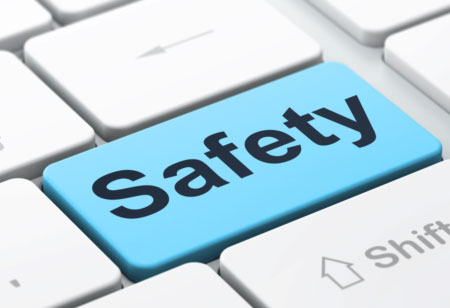THANK YOU FOR SUBSCRIBING
Be first to read the latest tech news, Industry Leader's Insights, and CIO interviews of medium and large enterprises exclusively from Education Technology Insights
How Students Can Guard Their Data Online?
All the students are adept at using internet-enabled devices. Still, they are not aware of the safety measures and don’t have enough knowledge to protect their sensitive information in cyber space.

By
Education Technology Insights | Wednesday, July 08, 2020
Stay ahead of the industry with exclusive feature stories on the top companies, expert insights and the latest news delivered straight to your inbox. Subscribe today.
All the students are adept at using internet-enabled devices. Still, they are not aware of the safety measures and don’t have enough knowledge to protect their sensitive information in cyber space. Here are some steps which will help them to guard their data.
FREMONT, CA: Cyber attacks are becoming common issues in the education sector. Nowadays, students are adept at using internet-enabled devices. Still, they are not aware of the safety measures and don’t have enough knowledge to protect their sensitive information in cyber space.
Why K–12 Students’ Data is Valuable to Cyber attackers?
Students have clean data, flawless credit reports, and pristine Social Security numbers, which is vulnerable to data theft and breaches. Cyber criminals want to exploit these valuable pieces of information. Even the criminals are read to pay a heavy amount for a student record on the black market. According to the reports, cyber attacks targeting the education sector has increased 50 percent over the previous quarter. That’s why schools need to step up their cybersecurity curriculum. All the educational institutions should take some responsibility to train students on how they can help keep their data safe from cybercriminals.
Data Security Starts with Simple Steps
Several educational institutions have put data security frameworks in place, but some are still not very clear about the process. But there are some easy tips to help students become better digital citizens. Here are some essential steps students can take to keep their data safe, throughout their elementary education, through college and beyond:
Make VPN your friend
In the world of digitization, most of the students prefer to use public Wi-Fi networks to access internet for homework and entertainment. Only a few of them use VPNs, or virtual private networks, to secure their online activity. As per the McAfee report, only 18 percent of students used a VPN for protection, while the other 90 percent used public Wi-Fi.
Strive to use untraceable passwords
Passwords play the role of guards, which protects the data, so try to make a long and complex password. A secure password must consist of more than ten characters, including letters, numbers, or special characters. Complex passwords are difficult to memorize, and also not easy to crack.
Beware of online questionnaires
Usually, students get tempted to fill out online questionnaires related to college admissions, hoping that doing so will better their chances of finding scholarships or other advantages. Some questionnaires and websites may ask students about sensitive things, like their political views, disabilities, health, weaknesses, and sexual orientation. Students and other people need to know more such as whom they are giving their information to and how the information will be used and shared and what choices and controls students have.
See Also :- Top Education Technology Solution Companies
I agree We use cookies on this website to enhance your user experience. By clicking any link on this page you are giving your consent for us to set cookies. More info

However, if you would like to share the information in this article, you may use the link below:
k12.educationtechnologyinsightsapac.com/news/how-students-can-guard-their-data-online-nid-1065.html






